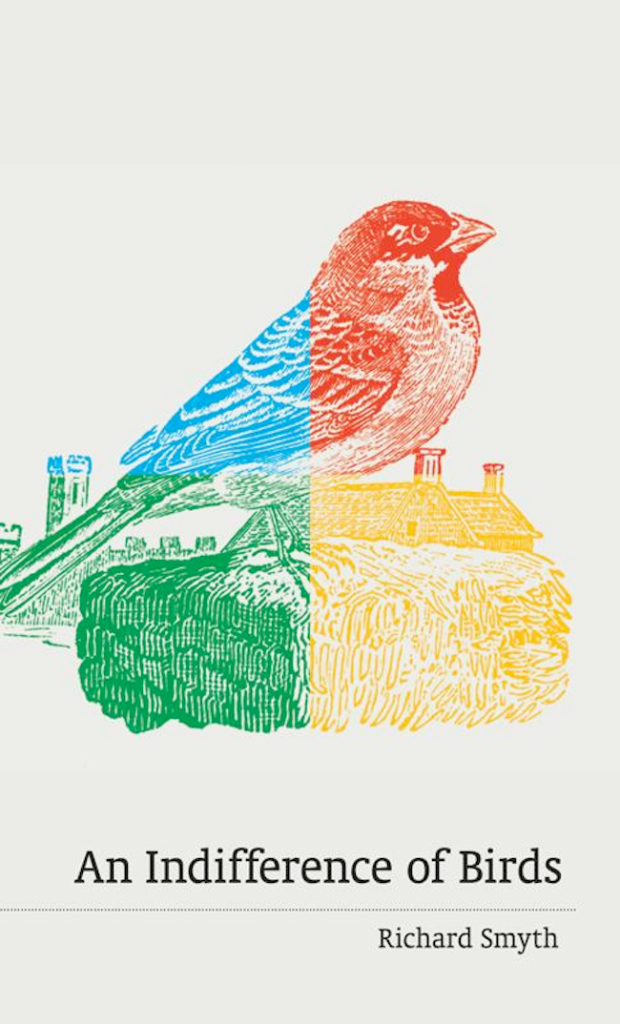Every winter, white storks – so elegant in the air, so rickety on land – make the long flight south from Europe to what we assume to be ancestral wetlands in sub-Saharan Africa. At least, that’s what most of them do. These days there’s one who disdains the long-haul option, preferring to hop across from its summer haunts in Germany to a landfill site in Morocco.
Elsewhere, scientists have been tracking the movements of a colony of lesser black-backed gulls in Zeebrugge. Most fly back and forth along the Atlantic seaboard, sometimes as far south as Senegal, in search of food. Some, though, opt for a 50-odd mile daily jaunt inland to a crisp and corn-snack factory where the refuse is heavy with treats.
Perhaps we should be aghast at this, at our subversion of the natural order. But, Richard Smyth argues in this brilliant and wildly original new book, perhaps what we really need to do is step back and try to see things from the birds’ point of view for a change. If phenomenological archaeology is the practice of understanding prehistoric sites through our physical and emotional experience of them, this is something like phenomenological ornithology: trying to understand birds through their experiences and behaviours.
Modernity, we feel, has robbed us of our nature. Nature now is where we are not, and what we are not. But to the birds, it is us who are just another natural phenomenon. There were herons and crows – and more – with us 11,000 years ago in Hallan Çemi, south eastern Anatolia, as we dragged ourselves out of the Holecene. The sparrows were there in Bethlehem 400,000 years ago. Our inns and stables were useful when they came, but they were doing just fine without us. Birds were surely watching us when we took our first step out of the trees in Namibia two million years ago. The hornbills of West Africa understood the alarm calls of the local Diana monkeys long before we did. They probably understood our first words too.
Birds may be indifferent to us. But they are not quite indifferent, on Smyth’s reading, to what we do: they simply judge us on a different axis to our own. They are indifferent to us in the way a timber merchant is indifferent to a forest: it is all a question of utility. Skyscrapers are not like cliffs to the peregrines that now roost among them, Smyth says. They are cliffs. Refuse dumps are just waste to us. But where we see, variously, profit or pollution, birds simply see a free lunch.
“Change is what wild things do,” Smyth says. Man is the wild thing that thinks it can keep things the same – even if it means applying the kind of ecological nativism that led us to exterminate the ruddy duck in the UK, having imported it here in the first place. We gave it citizenship, Smyth notes; it thrived for fifty-odd generations. Then we revoked its status and shot it from the sky. The ducks didn’t care how they got here. Who made us the planet’s immigration officers?
At times, the book comes close to implying that what we do doesn’t matter: birds will adapt. But that is not Smyth’s point at all. The point is, I think, that we need them more than they need us, but we shouldn’t be blind to the reciprocity in the relationship – or to their essential autonomy. For good and ill, it’s not all about us.
There are a lot of book about nature and wildlife which tell you what the author feels about what they see, and invites the reader to share those feelings. Smyth invites you to see things differently. Imagine a nature book conceived by the China Miéville of The City and The City, say, and written by someone with a rare attentitiveness to the texture and heft of the language.
Sometimes it’s as if we see ourselves as the only species with agency – as if the planet were a disaster movie and we were the only on-screen talent. Here we come now, the good guys, heroically saving the world from ourselves. But birds have their own perspectives. They have moved into our derelict industrial spaces; they have repopulated the abandoned city of Pripyat and the area around Chernobyl; they flourish in the no-mans-land of the demilitarized zones in Korea and Cyprus.
Perhaps, with longer memories and more life experience than us, the birds are simply waiting us out.
This review first appeared in the summer 2020 issue of New Humanist.
Read more of Mathew’s reviews here.
